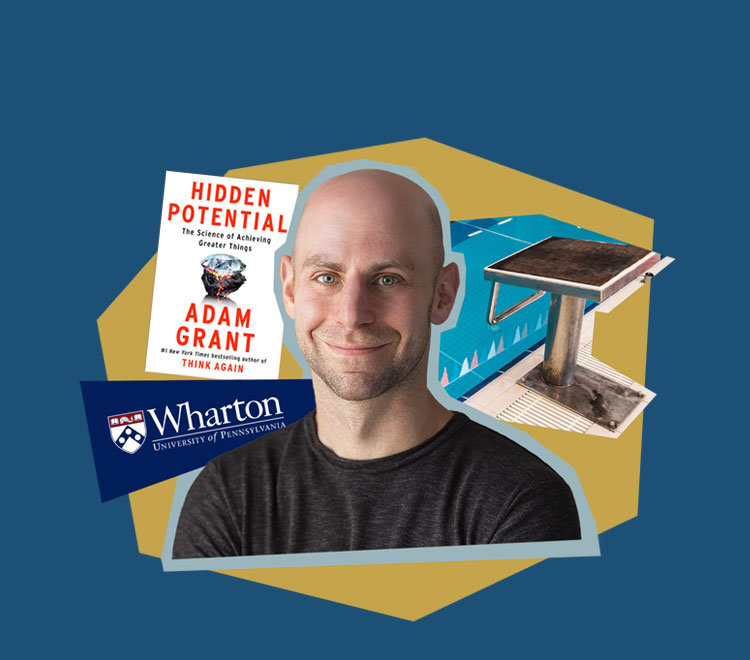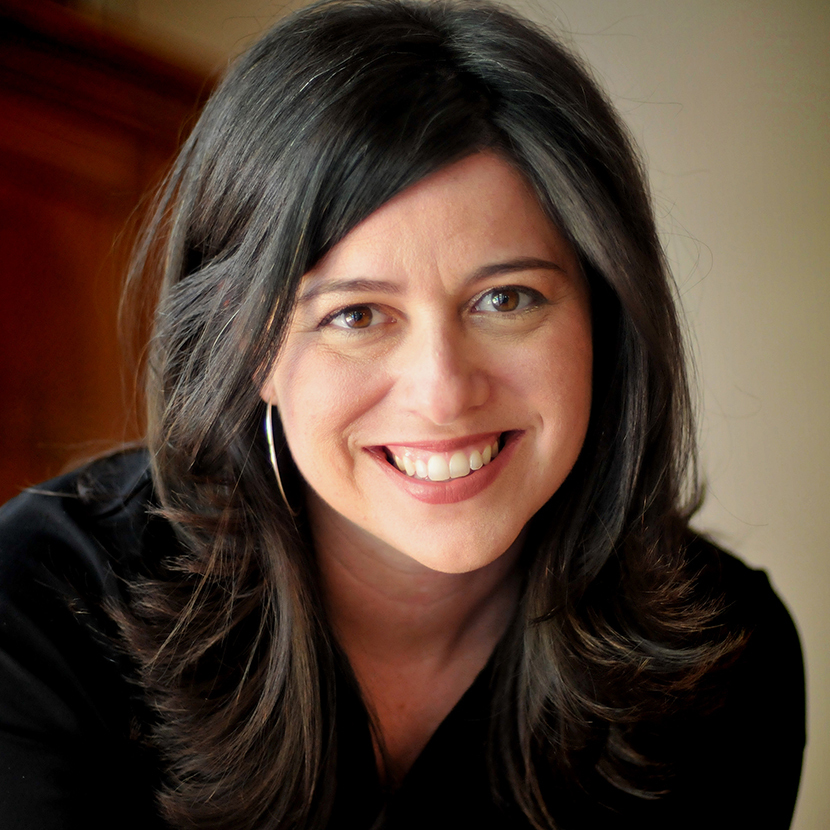Ten years ago, Brené started the Daring Interview series on her blog. It quickly became one of our favorite features. Now, we are relaunching the series and adding in a few new questions, including some from the late James Lipton, host of Inside the Actors Studio, and Smith Magazine’s Six-Word Memoir.
Adam Grant is one of those people, in my phone, whose ideas help me on a weekly basis. This is truly not an exaggeration because anytime I’m online, looking for inspiration, I run across someone who has shared a scroll-stopping quote from Adam Grant. Every time. You may know exactly what I’m talking about; and if you’re unclear, you’re in for a treat on how to think bigger while navigating the craziness of life, work, and everything in between. His latest book explores a new framework for raising aspirations and exceeding expectations.
Adam is an organizational psychologist at Wharton, where he has been the top-rated professor for seven straight years. He’s the #1 New York Times bestselling author of six books that have sold millions of copies — most recently Hidden Potential and Think Again. His TED talks have been viewed more than 35 million times, and his podcasts Re:Thinking and WorkLife have been downloaded over 80 million times. But it’s his clear and direct takes on the everyday work of being human that stop me in my tracks.
More specifically, Adam is one of those people who just has the knack and the credentialed know-how to share the most timely and thoughtful takes on the temperature of the day. Adam becomes the person you want sitting next to you as you strap into the rollercoaster of your week, just so you can hear his thoughts on what’s happening as you’re on the ride.
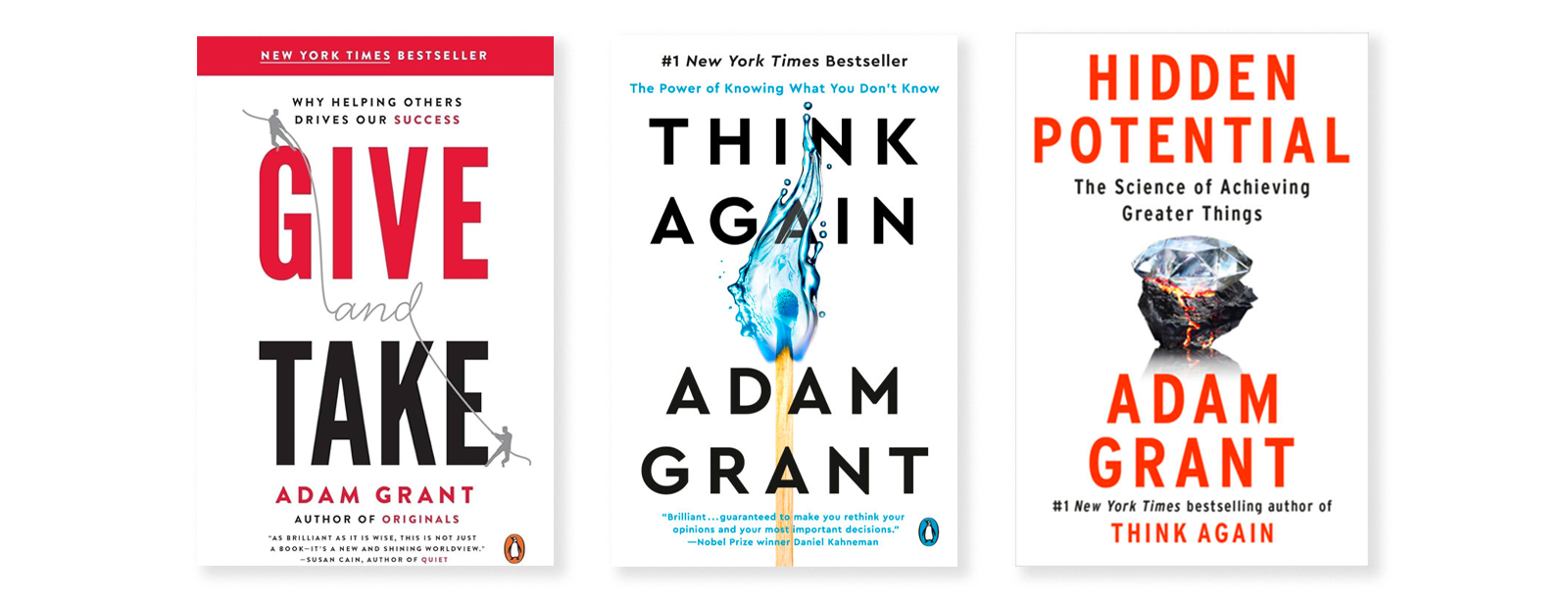
Vulnerability is . . .
Being secure enough in your strengths to show your weaknesses.
What role does vulnerability play in your work?
Vulnerability is at the heart of everything I study:
Generosity: part of being a giver is accepting the risk of helping a taker
Original thinking: championing a new idea requires putting yourself out there
Rethinking: to rethink and unlearn, you have to be willing to admit what you don’t know
Psychological safety: I’ve found in my research with Constantinos Coutifaris that one of the best ways to make it safe to speak up is to normalize vulnerability by talking about your own shortcomings out loud
What’s something that gets in the way of your creativity, and how do you move through it?
Being overextended. I move through it by refusing to add new commitments until I’ve subtracted old ones.
It’s often difficult to share ourselves and our work with the world, given the reflexive criticism and mean-spiritedness that we see in our culture — especially online. What strategies do you use to show up, let yourself be seen, share your work with the world, and deal with criticism?
Not all criticism is constructive. I decide in advance whose criticism I value. I listen carefully to people who are knowledgeable enough and caring enough to help me improve.
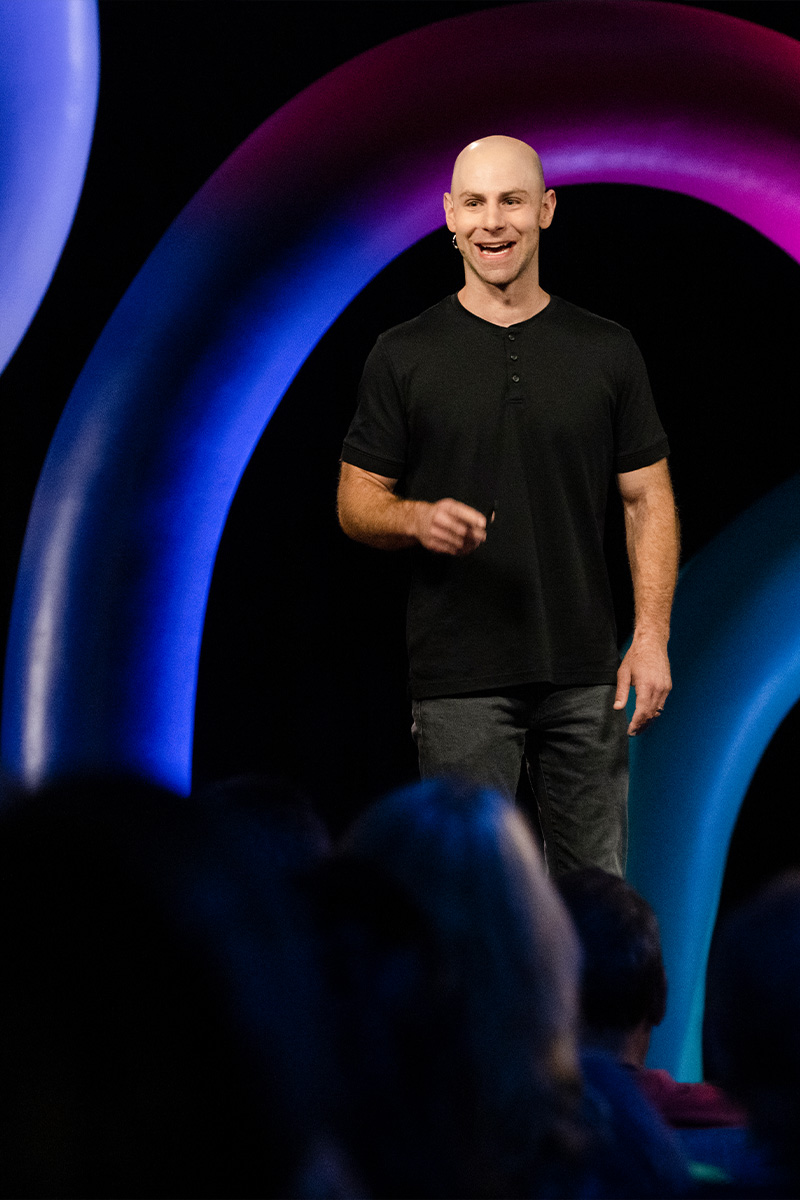
Adam’s TED talks have been viewed more than 35 million times, and his podcasts Re:Thinking and WorkLife have been downloaded over 80 million times; photography courtesy of Adam Grant.
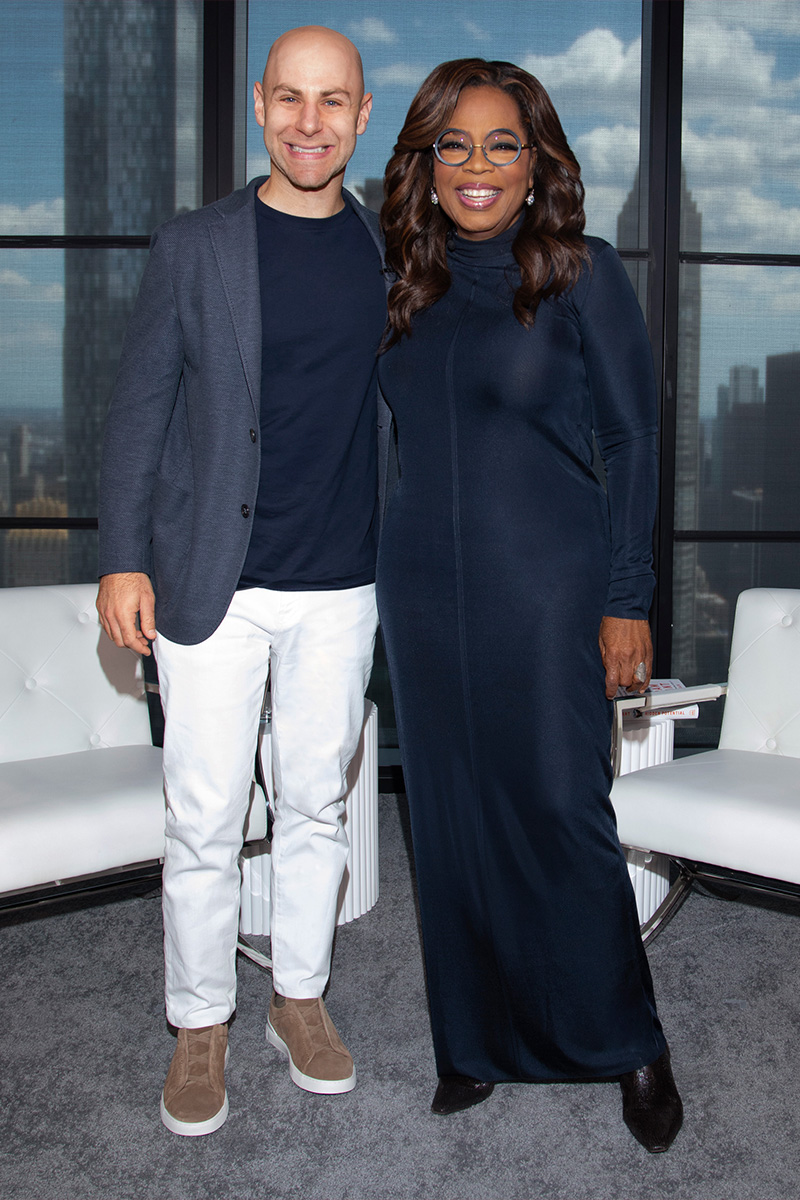
Adam wrote an op-ed for the New York Times titled “Unless You’re Oprah, ‘Be Yourself’ is Terrible Advice”; photography courtesy of Oprah.
Describe a snapshot of a joyful moment in your life.
As the rollercoaster started climbing, our son shouted, “I regret this!” At the end of the ride, he asked, “Can we go again?” Then he recruited a friend to join him, quoting the mantra his sister taught him: “Fun over fear.”
Do you have a mantra, manifesto, or favorite quote for living and loving with your whole heart?
The most meaningful way to succeed is to help others succeed.
What is your favorite word?
Quixotry (comes in handy in Scrabble).
What is your least-favorite word?
Ointment.
What sound or noise do you love?
The sound of going through a warp tube in Super Mario Bros.
The most meaningful way to succeed is to help others succeed.
What sound or noise do you hate?
Loud coughing.
What is your favorite curse word?
No-talent assclown.
A song/band/type of music you’d risk wreck and injury to turn off when it comes on?
Marilyn Manson.
Favorite show on television?
Ever? Seinfeld and The Office. Current? Severance.
Favorite movie?
Robin Hood: Men in Tights.
What are you grateful for today?
The opportunity to share insights.
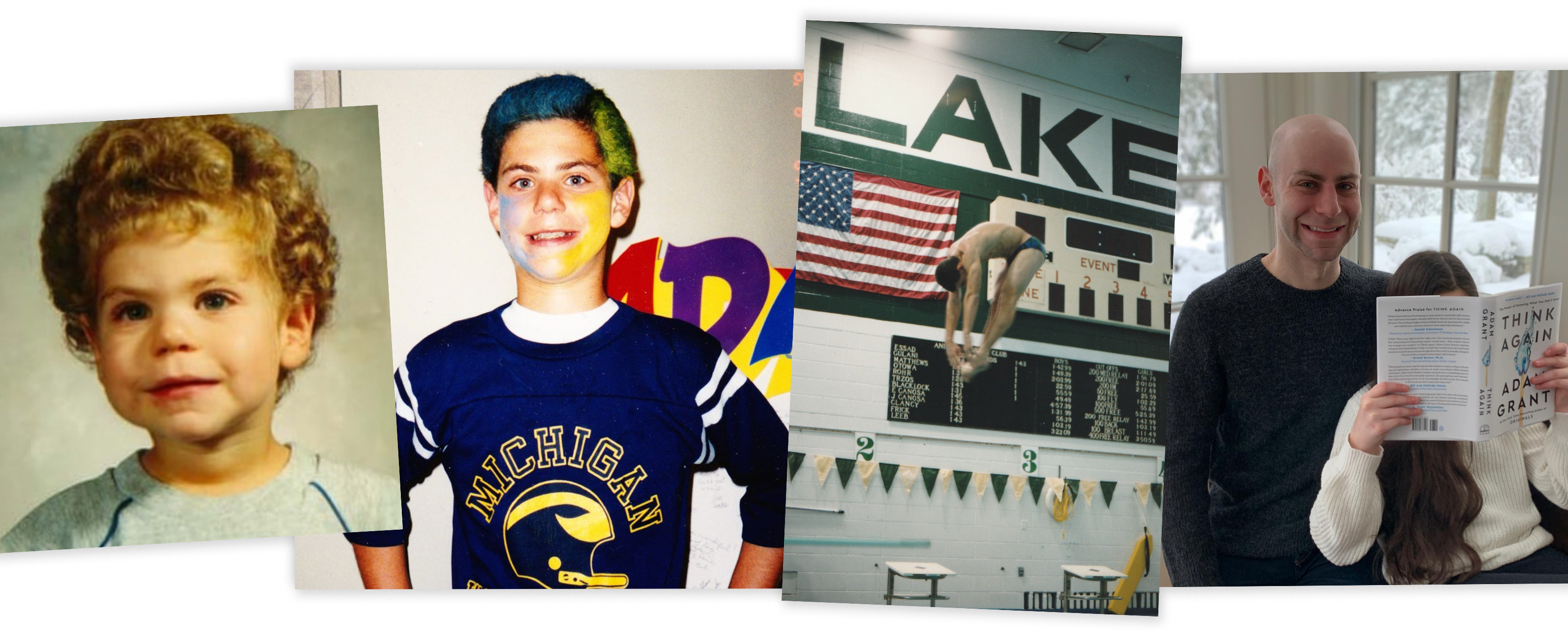
If you could have anything put on a T-shirt, what would it be?
Meh.
Favorite meal?
Cheese pizza or spaghetti.
A talent you wish you had?
Singing, dancing, or really anything involving rhythm.
Favorite song/band?
U2.
What’s on your nightstand?
Books! A mix of sci-fi, mystery, and big ideas.
What’s something about you that would surprise us?
I’ve never had even a sip of coffee.
Your six-word memoir . . .
No one is reducible to six words.
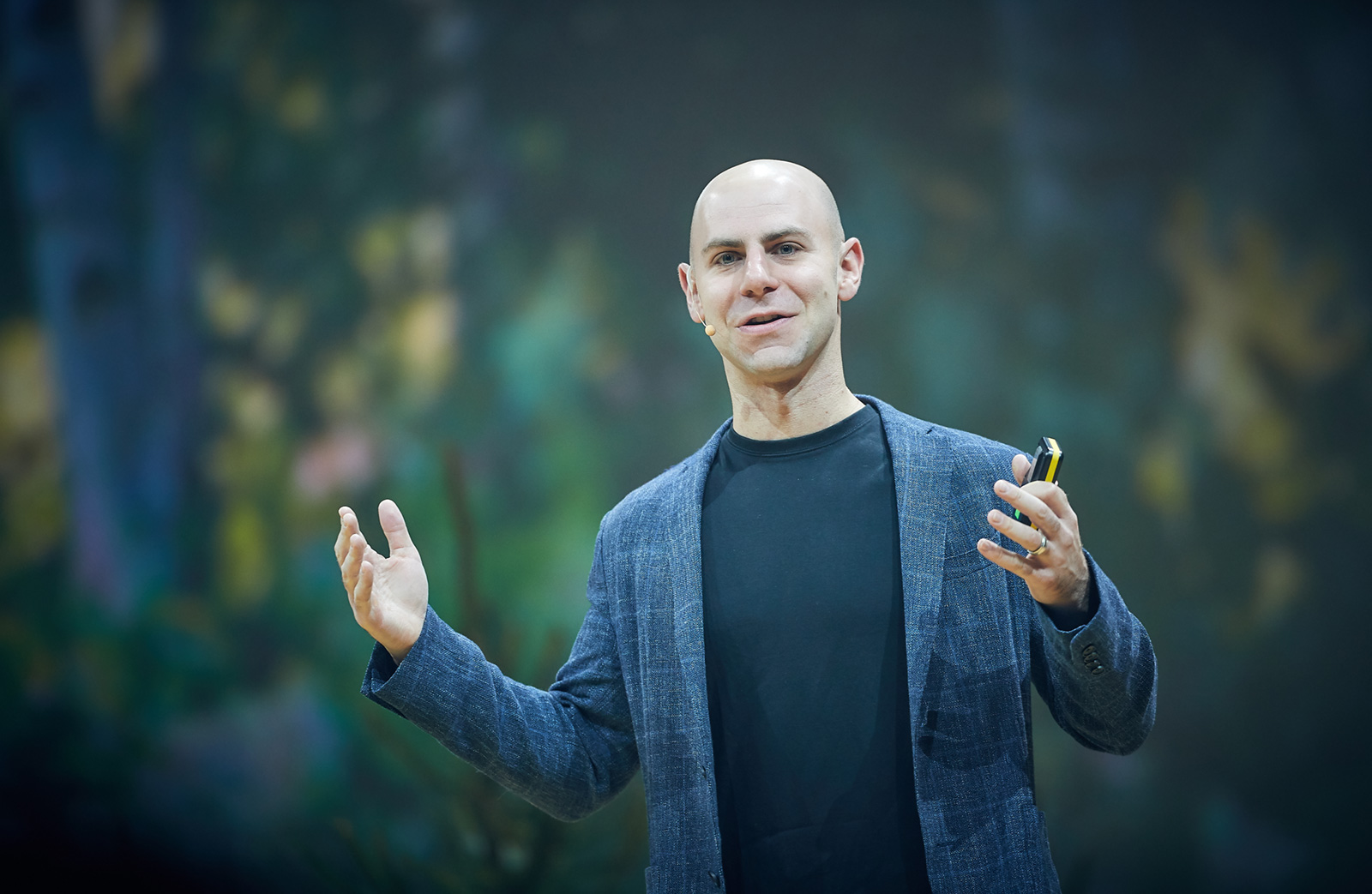
As the rollercoaster started climbing, our son shouted, “I regret this!” At the end of the ride, he asked, “Can we go again?” Then he recruited a friend to join him, quoting the mantra his sister taught him: “Fun over fear.”
